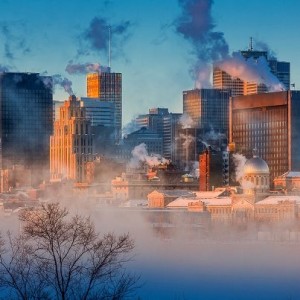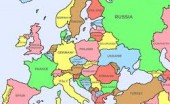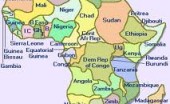Re Ian Bremmer 'Could third-party candidates upend the 2024 US election?' 3 April The current political movement in the USA…
Wednesday Night #1612
Written by Diana Thebaud Nicholson // January 23, 2013 // Wednesday Nights // Comments Off on Wednesday Night #1612

Photo by talented photographer
Mathieu Dupuis
WOULD ALSO LIKE TO POINT YOU TO AN AMAZING EVENT ON SATURDAY JANUARY 26 – http://www.dorsheiemet.myevent.com/ Joshua Nelson, the Prince of Kosher Gospel
We are living in eventful –as well as interesting – times, with plenty to keep us occupied with research, verification, formulating and reformulating thoughts and opinions.
Monday was, of course, the 65th anniversary of the adoption of the Quebec flag. Henceforth, says Mme Marois, January 21st will be Quebec Fleur-de-lys Day – not quite the same resonance as Martin Luther King Day, and we hate to think of school children being forced outside in order to wave flags in sub-zero temperatures, but, hey, bread and circuses are good (except when the news is bad, as for Cirque du Soleil)
Oh, you thought we would lead with THE story from south of the border? If truth be told, we were not outside turning into icicles as we waved our little blue and white flags, we were indoors, watching President Obama take his Oath of Office for the second time (or fourth, if you are counting – did you know that Obama is the second president in U.S. history to take the presidential oath four times? He was sworn in twice in 2008 out of an abundance of caution after Chief Justice Roberts flubbed the oath of office during the public administration). The Inauguration went off without a hitch and the Inaugural Address has been widely praised for grasping a number of policy nettles. Now the tough part starts and of course, everyone has lots of advice for him e.g.
Big Bets and Black Swans: Foreign Policy Challenges for President Obama’s Second Term Brookings Foreign Policy experts have created a series of memos addressing “big bets”—policies in which the president should invest his power, time and prestige—and “black swans,” the low probability, high-impact events that could derail the administration’s priorities.
And from Foreign Policy What can the 44th president really achieve in his second term? Here are 10 ideas.
More immediately relevant to Canada is Colin Robertson’s analysis of the possible nominees for Ambassador to Canada. From all accounts, Ambassador Jacobsen will be missed, but a number of the candidates mentioned would be able successors.
On Debate Sunday, gluttons for punishment watched the Quebec Liberal leadership candidates tackle corruption in 2nd debate and then moved on to the Tepid Liberal leadership debate [that] won’t change anyone’s mind — about anything. The good news is that in both debates, civility reigned. We did not watch the Quebec Liberal one, but did watch the federal one – the format was both choppy and tedious, giving no room for serious policy debate. It did give many of us an opportunity to see some of the less-well-known candidates for the first time. Meantime, Justin is still the front runner and the format favoured his rather vague pronouncements. We hope that the next ones will be more focused and it would be good to have fewer participants.
Tuesday is Election Day in Israel. According to all the pundits, there will be no great surprises. Netanyahu will be re-elected with a smaller majority, the country will move further to the right and there will be little hope for positive change vis à vis Palestine. For those who have not watched the evolution of the campaign, Haaretz offers this look at 10 pivotal moments. UPDATE: Prime Minister Benjamin Netanyahu’s hardline bloc fared worse than expected in a parliamentary election Tuesday, exit polls showed, possibly forcing the incumbent Israeli leader to invite surprisingly strong moderate rivals into his government and soften his line toward the Palestinians.]
We wonder whether the significance of the election outcome in the greater picture of the Middle East will be one of the topics addressed by Robert Fisk when he speaks at McGill Wednesday evening on The Arab Awakening . [John Buchanan and Joumane are planning to attend and to report to us afterwards.] The Current aired a very interesting interview with Dr. Fisk on Monday morning during which he spoke about the current situations in Mali and Algeria and gave a wide-ranging, highly credible, critique of western policy throughout the Arab world – well worth listening to. And if you cannot listen, then do read Algeria, Mali, and why this week has looked like an obscene remake of earlier Western interventions
David Jones writes in Embassy that the circumstances in Mali epitomize a local responsibility exercise, and asks why does Ottawa believe it has a dog in this fight? Elsewhere, a number of Canadians including Hugh Segal, Robert Fowler, Roméo Dallaire and Kyle Matthews argue strongly for more contribution than a week’s worth of C-17 lift.
The Algerian government is charging that a Canadian coordinated the Algerian hostage-taking. So far, Ottawa has suggested forged passports, but AFP identifies a number of cases of extremists living in Canada, including some refugee claimants from North Africa, while CBC reports that CSIS has identified up to 50 people who have left Canada to fight abroad. Jason Kenney will love this justification for more stringent immigration laws.
Wednesday is Election Day in Jordan – Foreign Policy asks: Is this a key turning point for reform in the kingdom, or mere cosmetic change? These elections will not answer these questions entirely, but they — and the exact process of government formation that follows — will go a long way to showing which version of Jordan’s trajectory is more accurate.
The World Economic Forum (Davos) opens on Wednesday with the usual list of Who’s Who and Wannabes. The theme is “Resilient Dynamism” and according to the pre-meeting Press Release: [there will be] “top decision-makers from North Africa who will outline their reform plans and shed light on the political, economic and social transitions in their respective countries. Among the leaders will be the prime ministers of Libya, Tunisia, Morocco and Egypt [no Algeria, we note]. The current situation in the Levant will be another key element. The programme will feature contributions by Abdullah II Ibn Al Hussein, King of the Hashemite Kingdom of Jordan; the Lebanese prime minister; the Palestinian prime minister; and the president of Israel. The prime minister of Qatar will provide his insight and address the economic and social priorities of the Gulf Cooperation Council countries. In addition, this year’s Annual Meeting marks a historic year for Africa. To date, participation is confirmed of 9 heads of state or government, from Ethiopia, Guinea, Kenya, Mauritius, Nigeria, Rwanda, South Africa, Tanzania and Zimbabwe.”
Stephen Harper isn’t going [guess he didn’t want to report on the Grand Plan for Canada that he unveiled there last year, to the dismay of those who felt this was a matter more appropriately dealt with on home turf] and the Wall Street Journal reports that the only Canadian policy maker who will be speaking is Mark Carney. You’ll be happy to know that Mme Marois is making the trip.
Which brings us back to Quebec and the two predominant issues – corruption and education. The resumption of the Charbonneau Commission set off some fireworks with Martin Dumont’s admission that his previous testimony was made-up . Given that Gerald Tremblay stepped down following that testimony (while denying Dumont’s allegations), we wonder what steps M. Tremblay will take to restore (at least in part) his good name. As the Education Summit approaches (Feb 25-26) and consultations abound, the Chamber of Commerce and Montreal universities are gathering for a forum that should unite the views of the academic and business communities. La communauté montréalaise se mobilise pour soutenir ses universités ; we expect more success than in last week’s meeting between students and rectors Students, universities at impasse as summit approaches. Stay tuned.
With all of these events and more, we are very pleased that Kimon will be with us to give a tour d’horizon of the prospects for global governance in the coming months.



